Reading Australia: 'The Messenger' by Markus Zusak
The underlying theme in Marcus Zusak’s novels is ordinariness. Whether he is writing from the perspective of two working class-brothers struggling to get noticed for their boxing abilities in Fighting Ruben Wolfe (2000), or from that of Ed in The Messenger (2002) – ‘the epitome of ordinariness’ – the theme looms in complex ways over his writings. Even a character such as Death in his best-known work, The Book Thief (2005), is depicted as facing the same mundane issues as most human beings: he is easily distracted, he can’t make up his mind, he feels overwhelmed by his demanding work.
This focus is also what makes Zusak’s work so fundamentally Australian, even when set overseas. Ordinariness encompasses so many prominent cultural tropes in Australian art and literature: the underdog, the loser, the anti-hero, the working-class hero, the woman maligned and forgotten in a harsh landscape. All of these figures function in a multiplicity of ways in The Messenger, against a suburban backdrop, which comes with its own cultural connotations of inertia, entrapment, and conformity. From here the reader is taken on a journey with Ed, who discovers that the smallest things are the most significant and that the most ordinary people are the most extraordinary.
At the beginning of The Messenger, Ed declares himself to be a failure at most things, including sex, friendship, and being a dutiful son: ‘I’d been taking stock of my life ... No real career. No respect in the community. Nothing.’ Being average, for Ed, does not seem to lie in comparison with others so much as in a refusal to participate in elaborate interpretations of his own life. To pass as average is to avoid the need for abstract explanations of what one is or does. Ed’s representation of himself as typical, average, and boring typifies the way his life is not to be taken as representative of large social structures or processes, but to be understood at a more immediate level, simply for what it is. The way Ed narrates his story as the reader gets to know him helps Zusak to establish him as an uncomplicated character. For example, this is how Ed describes himself:
I cook.
I eat.
I wash but I rarely iron.
I live in the past and believe that Cindy Crawford is by far the best supermodel.
That’s my life.
The prose consists of simple sentences, largely unadorned by adverbs or adjectives. The repetition of the personal pronoun ‘I’ with no reference to how that ‘I’ interacts with the objects or people in its life reinforces an image of a simple, unintrospective life. This is reinforced by Zusak’s lineation, primarily composed of one sentence per line. This creates a border of blank space on each page, reinforcing what Ed’s life is about – not much.
 The Messenger by Markus Zusak (2002, Pan MacMillan Australia)
The Messenger by Markus Zusak (2002, Pan MacMillan Australia)
Buy this bookAs the story unfolds, Ed accidentally foils a bank robbery and the local newspapers exaggerate his heroism. Shortly after, he begins to receive playing cards from an unknown source. On them are cryptic messages which lead him to the people he has been sent to help. The Ace of Diamonds appears first in his mailbox. On the card someone has written three times and addresses. When Ed visits each of them he finds someone in need: a woman who is raped nightly by her husband; a lonely, senile woman; and a young girl who needs to be reminded of the joy she takes in running. Thus begins Ed’s reluctant journey into an elevated consciousness in which he is forced to consider what others require to live more meaningful and fulfilled lives and thus to consider how he can do the same.
The Messenger is a deeply moral work which provokes the reader to consider the judgments they make about strangers, and to contemplate the small acts of kindness that can have profound effects on their lives. Zusak seems to suggest that we must learn to observe the ‘small things that are big’, a phrase Ed uses towards the end of the book. Whenever Ed is sent out to help someone new, he spends time watching people. He is learning to observe, and this makes him a better human being. He realises that Angie Carusso, a single mother with three children, needs an ice cream of her own to remind herself of life’s small pleasures, and that a struggling family that has recently moved into town needs someone like Ed to remind them that they are not alone.
This message is enforced by the language of the text which, in its stripped-back simplicity, paradoxically forces the reader to consider the complexity of the images being presented. When Ed visits Father Riley’s battered church, he sits in a pew trying to determine why the latest playing card he received has directed him there. The scene is described through a simple accumulation of images, all of which represent silence and inaction:
When ten o’clock strikes, the bells of the church take possession of the congregation, and now, everyone – the kids, the powdered ladies with handbags, the drunks, the teenagers and the same people who are there week-in week-out – all fall down in silence.
The father.
Walks out.
He walks out and everyone waits, for the words
[...]
There are no other words yet.
No prayers.
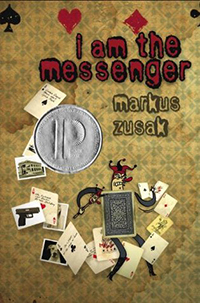 The Messenger by Markus Zusak (2005, Knopf books for young readers)
The Messenger by Markus Zusak (2005, Knopf books for young readers)
Buy this bookA space with ‘no words’ is a reoccurring motif in the book. Here, Zusak draws our attention to the things that are often overlooked because of the human tendency to seek meaning in speech and action. These frequent pauses create an intense atmosphere in the scene. It opens with a long sentence which employs the dash to force us to concentrate on the images of the type of people we often fail to observe (‘drunks’, ‘powdered ladies’, etc.). The longer pauses created through the one-sentence paragraphs (‘The Father.’ ‘Walks out’) places the reader in the position of Father Riley’s motley crew of parishioners, whose strong ties to their priest are evident in the way they allow him to inhabit the space of his church by paying him more attention than they devote to their own neglected lives. Ed’s burgeoning awareness of his surroundings is also represented through his narration, which, over the course of the novel, increases in its level of detail and its complex layering of multiple images.
The rhythm and pace echo the reality of the quiet suburban lives depicted in this book. The Messenger bears many of the hallmarks of the crime and thriller genre; there is the mystery of who is leaving the playing cards for Ed and why they want him to intervene in so many lives, as well as the constant threat of criminal thugs who show up uninvited at his house to make sure he is carrying out his job, as well as the many false climaxes and clues which lead the reader towards false conclusions. But the text also works against these conventions. The criminals aren’t so threatening; they bring him meat pies and sit on his couch cracking jokes. When Ed takes a gun to shoot the abusive husband, he ends up firing into the air instead; he is no hard-boiled criminal either. Unlike traditional thrillers, which gain pace towards the end, The Messenger slows down, becomes more contemplative and joyful in tone, so that when Ed and Marv daub graffiti in order to advertise the fact that there will be free beer at Father Riley’s next service, their escape from the scene of the crime reads:
Our footsteps run and I don’t want them to end. I want to run and laugh and feel like this forever. I want to avoid any awkward moment when the realness of reality sticks its fork into our flesh, leaving us standing there together. I want to stay here in this moment and never go other places, where we don’t know what to say or do.
The irony here is that this is the first time in the book when Ed knows precisely what to say and do. He says nothing and does not try to make sense of the moment, but rather revels in the joy of the incredible here and now. His ‘footsteps run’; they are not a part of his awkward physical self which he dislikes so much. He doesn’t need to ‘go to other places’, like his siblings and friends who have sought social and economic advancement by leaving a dying suburb on the edges of town. The reality of leading a life so painful that it is represented through the metaphor of sticking ‘a fork into flesh’ dissolves into a blissful moment.
Towards the end of the book, the playing cards lead Ed away from intersections with the lives of people he does not know, towards the lives of his friends and family, and ultimately himself. When he takes the time to observe and question the lives of his friends Marv, Richie, and Audrey, he discovers that each of them is emotionally vulnerable, with a complex interior life he has failed to notice before, as they all appeared so tough, confident, and incapable of self-introspection. This realisation that the people he thought himself closest to have been presenting false exteriors paves the way for his growing understanding of the fact that his family, who have done so much to determine his negative ideas, have entrapped him in a false image of himself and his potential.
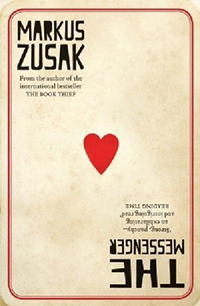 The Messenger by Markus Zusak (2013, PanMacMillan)
The Messenger by Markus Zusak (2013, PanMacMillan)
Buy this bookOne of the final playing cards leads Ed to a restaurant where he observes his mother on a date with a man with whom she may or may not have been having an affair before his alcoholic, loving father died. ‘There’s my ma, fifty-odd years old, high-tailing around town with some guy- while I sit here, in the prime of my youth, completely and utterly alone. I shake my head. At myself.’ Ed’s observations of his mother here are typical of his reactions to her constant demeaning of him throughout the book. His judgements of her poor behaviour are directly reflected back at himself. The fact that she is self-obsessed and living a fulfilled life is juxtaposed to his own isolation. Her actions highlight his own inaction. Shortly after, on Christmas Day, his mother berates him beyond endurance. ‘I want so much to verbally abuse this woman standing there in the kitchen, sucking in smoke, and pouring it out from her lungs. Instead, I look right at her ... “The smoking makes you ugly,” I say, and walk out, leaving her stranded among the haze.’ This is when Ed decides to stop seeing himself through the distorted lens of others; to regard himself in a new light. His use of impersonal and generic terms to describe his own mother (‘this woman’, ‘you’) emphasise the internal distance he has travelled towards defining his sense of self in his own terms.
The final pages of The Messenger lead the reader through a series of images and people we have already met before but are now being asked to regard with greater significance. The bank robber from the start of the text gets into Ed’s cab and asks him to drive to all the houses of the people he has helped and then finally back to his own home. It is both a literal and metaphorical journey for Ed. He realises that he was never the one delivering the messages – he was the message. In helping others he has ultimately helped himself. The robber hands him a lesson he has already learned, ‘If a guy like you can stand up and do what you did for all those people, well, maybe everyone can. Maybe everyone can live beyond what they’re capable of.’
The ultimate message is that even the most ordinary people can be remarkable too.
Referenced works
Zusak, Markus (2002) The Messenger, Pan Macmillan








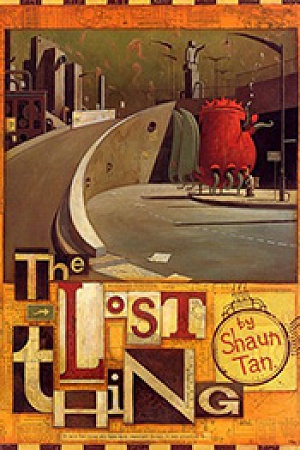
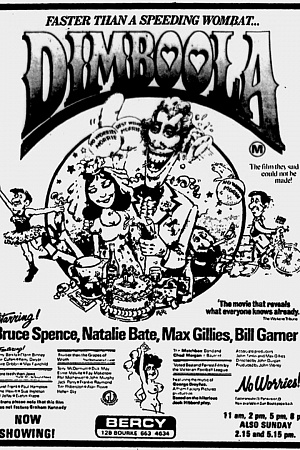
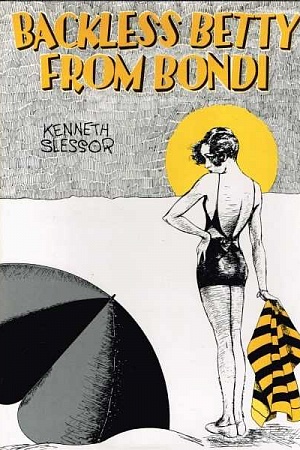
Comment (1)
The story was intriguing and mysterious and the language was spare.
The device of using playing cards to solve the puzzle of Ed's life was brilliant
Leave a comment
If you are an ABR subscriber, you will need to sign in to post a comment.
If you have forgotten your sign in details, or if you receive an error message when trying to submit your comment, please email your comment (and the name of the article to which it relates) to ABR Comments. We will review your comment and, subject to approval, we will post it under your name.
Please note that all comments must be approved by ABR and comply with our Terms & Conditions.